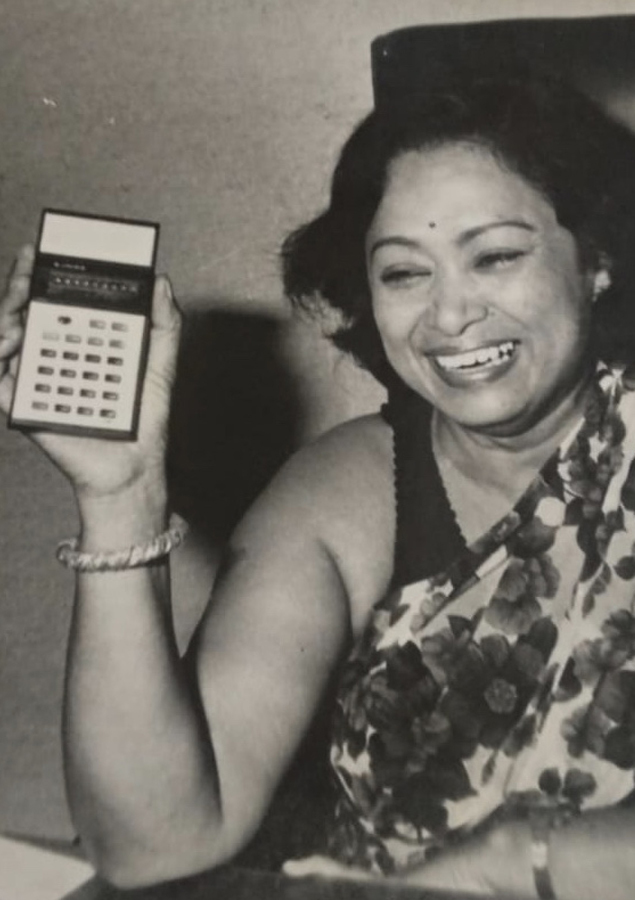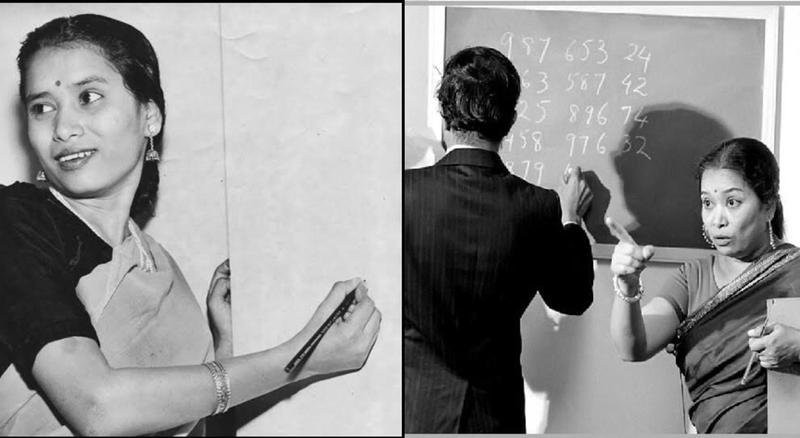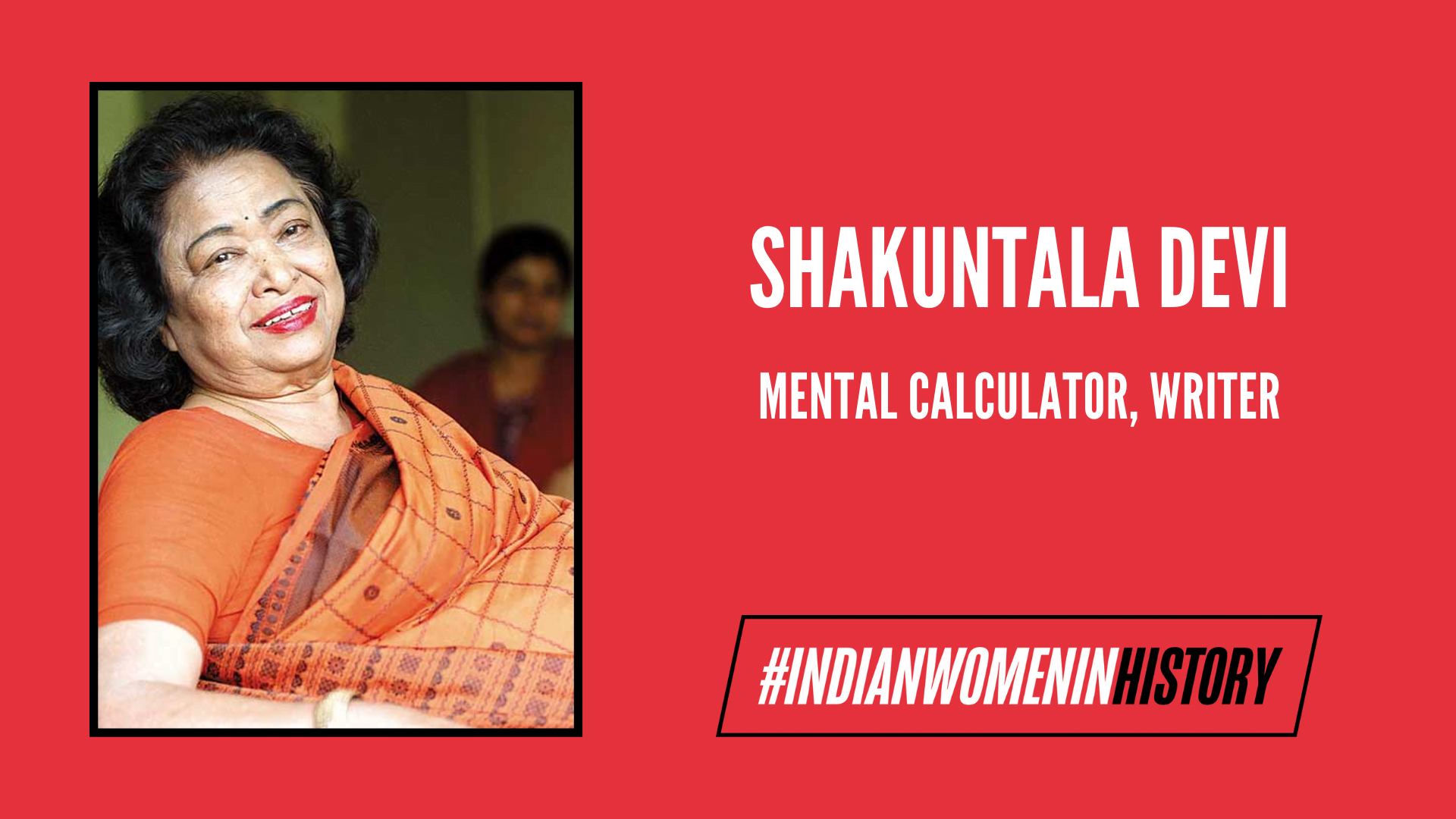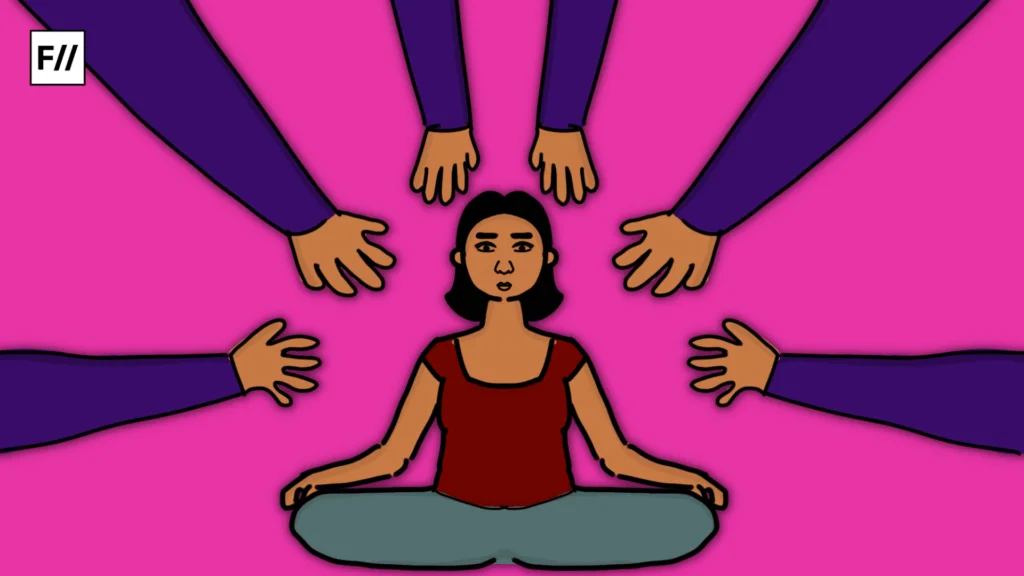Shakuntala Devi was a mathematical prodigy and an author. Born on 4th November 1929, in Banglore, Karnataka, she was gifted with an exceptional ability to carry out complex mathematical calculations in her mind at a speed faster than then available computers.
Her father who used to work in a circus, discovered her exceptional talent when he used to teach her card tricks when she was three years old. Soon, he left the circus and performed various road shows with his daughter to exhibit her exceptional ability. She did not receive any formal education because her parents could not afford the school fee. In an interview with Aaaj ki khabar, when asked to whom she would like to accord the credit for her unprecedented talent, she simply says “god gave me this gift”.
During the 1980s she also contested the Lok sabha elections as an independent candidate from Mubai south and Medak in Andhra pradesh, where she contested against the then former prime minster Mrs. Indira Gandhi.
In 1988, Arthur Jensen, an American psychologist, writer and a professor in The University of California, Berkeley conducted several tests on Shakuntala Devi’s skills and published his findings in the journal named Intelligence in 1980. However, none of the objective tests could decipher how she was able to have such exceptional mental calculation skill and abilities

The journey of being a ‘human computer’
Shakuntala Devi’s first major show was at the age of six, at the University of Mysore. According to The New York Times, she once said, “I had become the sole breadwinner of my family, and the responsibility was a huge one for a young child. At the age of 6, I gave my first major show at the University of Mysore, and this was the beginning of my marathon of public performances.” In 1977, Devi visited the Southern Methodist University where she calculated the 23rd root of a 201 digit number in mere 50 seconds whereas the then fastest computer, Univac 1108, took 62 seconds to find out the answer.
One of her landmark achievements is the entry into The Guinnees book of world records in 1982 for needing less than half a minute to calculate the product of two randomly assigned 13 digit numbers, demonstrated at the Imperial College, London.
In 1988, Arthur Jensen, an American psychologist, writer and a professor in The University of California, Berkeley conducted several tests on Shakuntala Devi’s skills and published his findings in the journal named Intelligence in 1980. However, none of the objective tests could decipher how she was able to have such exceptional mental calculation skill and abilities.
Although, he expressed that prolonged practice in a particular field might have played a pivotal role in the development of her abilities. He also mentions in his report that, “Devi ‘perceives’ large numbers differently from the way most of us ordinarily do. When she takes in a large number (and she must do this visually), it undergoes some transformation, almost instantly — usually some kind of simplification of the number.”

Also read: ‘Shakuntala Devi’ And The Patriarchal Trope Of The ‘Good Mother’
Shakuntala Devi also had an exceptional ability in calendrical calculations from which she was able to find out the weekday from any date of the last century. She has described some of the methods and techniques about mental multiplication and calendar calculations in her book ‘Figuring:the joy of mathematics’.
All of these watershed achievements in Devi’s life earned her the status and the title of ‘Human computer’. However, she never lauded the title as she believed that the human mind has incomparably more capabilities than the computer and it is not appropriate to compare human mind with computers. She also entered into the field of astrology by mindfully utilising her mathematical capabilities.
Shakuntala devi passed away on 21st April 2013 due to cardiac arrest. In a society which continues to follow gendered ideas like ‘girls are good in english and boys are good in maths’ the example of Shakuntala Devi is one that shatters such gender assignment of capabilities
Personal life, life as an author
Shakuntala married Paritosh Banerji an IAS officer in Kolkata in 1960. After the birth of their daughter Anupama Banerji, their marriage hit a rough patch and they got separated in 1979, due to private problems.
Apart from being a wizard in arithmetic calculations, Shakuntala Devi has authored several books on mathematical calculations as well as written a few fictional novels. One of the most contested books authored by her was ‘The World of Homosexuals’, claimed to be the first published academic study of homosexuality in India. In the book, she critiques the stereotypical ideas and beliefs associated with homosexuality in India.

Queer activist Harish Iyer in his review of the book says, “The book is so progressive because it came in the late 70s and early 80s. I am sure if Shakuntala Devi was alive today she would have been really happy and would have file a petition against section 377 herself.”
Shakuntala devi passed away on 21st April 2013 due to cardiac arrest. In a society which continues to follow gendered ideas like ‘girls are good in english and boys are good in maths’ the example of Shakuntala Devi is one that shatters such gender assignment of capabilities.
Aldo read: Film Review: Shakuntala Devi – A Problematic Portrayal That Barely Touches Upon Her Genius





